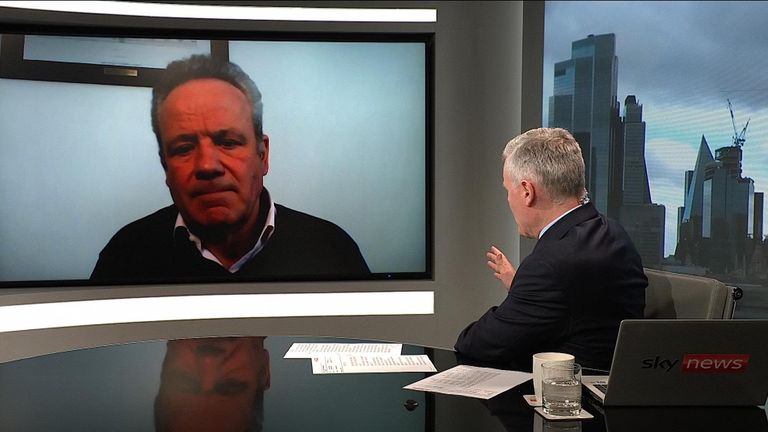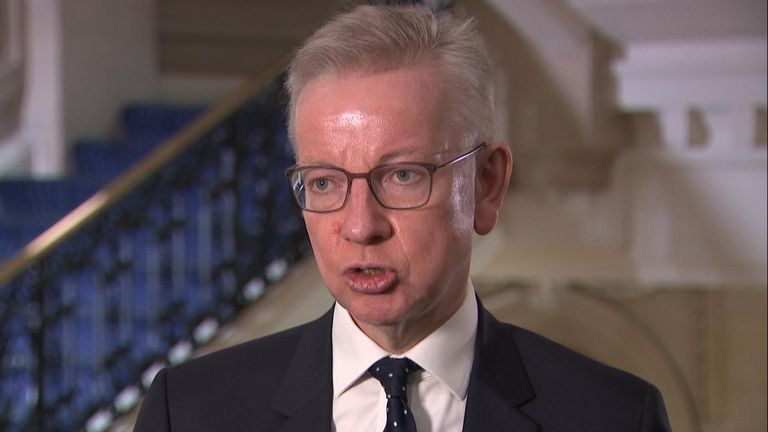Speaking with Chris Weston this morning, it was striking just how confident the Thames Water chief executive seems to be that a deal will eventually be struck between his shareholders and Ofwat, the industry regulator.
The former are refusing to go ahead with what was a planned injection of fresh equity to the tune of £500m which was due by the end of the month because of the latter’s imposition of conditions which, they say, makes the business uninvestable.
It is difficult to see why Mr Weston, a turnaround specialist who only took on the role in January, is quite as optimistic as he is.
Tricky relations between the regulator and the regulated are nothing new: before the current five-year regulatory period, four companies – Anglian, Yorkshire, Northumbrian and Bristol Water – even appealed to the Competition & Markets Authority when Ofwat set targets on performance and investment returns that they believed were too tough. Much to Ofwat’s dismay, the companies won.
But Ofwat will be desperate not to be seen as acceding to the demands of Thames Water’s shareholders in case it sets a precedent. The owners of other water companies would take note and might well, in future, seek special treatment themselves.
Yet, the shareholders are also in an awkward position.
As Mr Weston reminded Sky News, they have not received a dividend from the business since 2017, so will need a very good reason to stick in another £500m without any indication that, at some point, they might see a return on that investment.
Read more:
Why water companies insist higher bills are ‘essential’
Ofwat to return customer money as water firms underperformed
However, if they do not inject fresh capital, at some point Thames risks being overwhelmed by its £18.3bn debts. A failure to repay its debts would trigger Ofwat’s so-called ‘special administration regime’ – in other words, nationalisation.
That would see their existing investment wiped out, something that should alarm – among others – Britain’s university lecturers, whose pension scheme is Thames Water’s second-largest shareholder.
So a deal needs to be done and the impasse broken.
Click to subscribe to the Sky News Daily wherever you get your podcasts
In the meantime, while there will naturally be alarm at Mr Weston’s confirmation that Thames is seeking 40% increases in water bills, it is worth noting that water bills will be going up everywhere in the next regulatory period running from 2025 to 2030.
This is because, for the last two decades, the main priority for Ofwat has been keeping bills down.
It is why UK water and sewage bills have actually fallen in real terms (when adjusted for inflation) over the last 15 years or so, and are among the lowest in Europe. That is now changing, partly due to public concern over the increased instances of sewage being dumped into rivers and the sea.
It is also because, due to the upsurge in population in certain parts of England – most notably the regions served by Southern Water, Thames Water and Anglian Water – there is a need to upgrade and modernise water industry infrastructure. Much of the cost of that investment will be met in the first instance not by households but by investors in the water industry.
That backdrop is worth bearing in mind given the increased possibility of Thames being nationalised under Ofwat’s special administration regime.
Mr Weston was at pains to talk down such a prospect in the near term and pointed out that, with some £2.4bn of cash and available committed facilities from its bankers, the company is unlikely to run out of money before the end of next year.
But corporate bond investors, to judge how bonds of the wider Thames Water entity have traded today, clearly see an increased risk of a default.
Nationalisation would not, as some suggest, be free of pain. The government has just changed the law surrounding the special administration regime which would potentially dump some of Thames’s debts on its shareholders rather than leaving taxpayers to take them on. That might sound attractive to a government not wanting, understandably, to take on some £18bn worth of extra borrowings.
But it would serve as a powerful deterrent to any overseas investors entertaining the thought of investing in the UK’s utility sector which, at a time when the country is seeking to step up investment not only in water and sewage infrastructure but also in energy generation, is something no-one should want.
Nor would nationalisation serve the public well.
Studies show that the state-owned water companies in Northern Ireland and the Republic of Ireland are significantly less efficient than their peers in England and Wales while state-owned Scottish Water’s efficiency only improved when in 2001 the Scottish government, then run by Labour, altered regulations to specifically benchmark its performance to the privatised sector south of Hadrian’s Wall.
On that basis, it really is in everyone’s interest for peace to break out between Ofwat and the Thames shareholders. Or, as seems unlikely at present, for Thames to bring in new equity investors.


